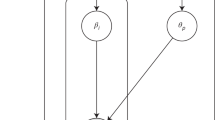Abstract
This paper discusses several common misunderstandings regarding theories of competence. Such theories are characterized as being concerned with the epistemological side of cognitive psychology and as being based primarily on evidence of a special kind: intuitions of competent performers. The nature of such evidence is examined in relation to the question of objectivity. The position that competence may be described in terms of implicit rules is discussed from several perspectives. Finally a number of empiricist objections to the notion of competence are examined: particularly ones based on the fact that whereas competence theories are infinitary, deterministic, and formally complete, observations of actual performance suggest that it is best characterized as finitary, probabilistic, and heuristically organized. Finally the question of the psychological reality of competence formalisms is discussed and it is argued that the claim of the psychological reality of amechanism, as opposed to a structural description, is only appropriate when the mechanism accounts parsimoniously for the widest possible range of empirical phenomena.
Similar content being viewed by others
References
Braine, M. D. S. (1965). On the basis of phrase structure.Psych. Rev. 72: 483–492.
Carroll, Lewis. (1956). What the tortise said to achilles. In Newman, J. (ed.),The World of Mathematics. Simon & Schuster, New York, pp. 2402–2405.
Chomsky, N. (1957).Syntactic Structures. Mouton, The Hague.
Chomsky, N. (1964).Current Issues in Linguistic Theory. Mouton, The Hague.
Chomsky, N. (1965).Aspects of the Theory of Syntax. M.I.T. Press, Cambridge, Mass.
Chomsky, N. (1969). Linguistics and philosophy. In Hook, S. (ed.),Language and Philosophy. New York University Press, New York.
Clark, H. H. (1969). Linguistic processes in deductive reasoning.Psych. Rev. 76: 387–404.
Crothers, E., and Suppes, P. (1967).Experiments in Second-Language Learning. Academic Press, New York.
De Groot, A. D. (1965).Thought and Choice in Chess. Mouton, The Hague.
De Saussure, F. (1959).Course in General Linguistics. The Philosophical Library, New York.
Dreyfus, H. L. (1972).What Computers Can't Do: A Critique of Artificial Reason. Harper & Row, New York.
Feldman, J. (1969). Some decidability results on grammatical inference and complexity. Stanford Artificial Intelligence Project memo A1-93, Stanford University, Calif.
Fodor, J. A. (1968).Psychylogical Explanation. Random House, New York.
Gold, M. (1967). Language identification in the limit.Information and Control 10: 447–474.
Halle, M. (1961). On the role of simplicity in linguistic descriptions. In Jacobson, R. (ed.),Structure of Language and Its Mathematical Aspects. Proceedings of the 12th Symposium in Applied Mathematics. Providence, R.I.
Heyting, A. (1966).Intuitionism: An Introduction (2nd. ed.). North Holland, Amsterdam.
Hockett, C. F. (1968).The State of the Art. Mouton, The Hague.
Hook, S. (ed.) (1969).Language and Philosophy. New York University Press, New York.
Katz, J. J. (1964). Semi-sentences. In Fodor, J. A., and Katz, J. J. (eds.),The Structure of Language. Prentice-Hall, Englewood Cliffs, N.J.
Köhler, W. (1929).Gestalt Psychology. Liveright, New York.
Koutsoudas, A. (1966).Writing Transformational Grammars. McGraw-Hill, New York.
Luchins, A. S., and Luchins, E. H. (1965).Logical Foundations of Mathematics for Behavioral Scientists. Holt, Rinehart, and Winston, New York.
Lyons, J. (1968).Introduction to Theoretical Linguistics. Cambridge University Press, Cambridge.
McCarthy, J., and Hayes, P. (1969). Some philosophical problems from the standpoint of artificial intelligence.Machine Intelligence 4. University of Edinburgh Press, Edinburgh.
Menyuk, P. (1969).Sentences Children Use, M.I.T. Press, Cambridge, Mass.
Miller, G. A., and Chomsky, N. (1963). Finitary models of language users. In Luce, R. D., Bush, R. R., and Galanter, E. (eds.),Handbook of Mathematical Psychology, Vol. II. Wiley, New York.
Miller, G. A., Galanter, E., and Pribram, K. H. (1960).Plans and the Structure of Behavior. Holt, Rinehart and Winston, New York.
Myhill, J. (1952). Some philosophical implications of mathematical logic.Rev. Metaphysics 6: 165–198.
Newell, A., and Simon, H. A. (1972).Human Problem Solving. Prentice-Hall, Englewood Cliffs, N.J.
Osgood, C. E. (1968). Toward a wedding of insufficiencies. In Dixon, T. R., and Horton, D. L. (eds.),Verbal Behavior and General Behavior. Prentice-Hall, Englewood Cliffs, N.J.
Polya, G. (1954).Mathematics and Plausible Reasoning Vols. I & II. Princeton University Press, Princeton, N.J.
Pylyshyn, Z. W. (1972a). The problem of cognitive representation. (Research Bulletin No. 227), University of Western Ontario, Department of Psychology, London, Canada, 1972 (Mimeo).
Pylyshyn, Z. W. (1972b). Competence and psychological reality.Amer. Psych. 27: 546–552.
Pylyshyn, Z. W. (1972c). Minds, machines and phenomenology: Some reflections on Dreyfus' “What Computers Can't Do.” (Research Bulletin No. 235), University of Western Ontario, Department of Psychology, London, Canada, 1972.
Ross, J. (1972). Sloppier and sloppier: a hierarchy of linguistically possible open sentences. Paper presented at a Workshop on Formal Semantics and Linguistics, University of Western Ontario, London, Canada, April, 1972 (to be published).
Simon, H. A., and Newell, A. (1964). Information-processing in computers and man.Amer. Sci. 52: 281–300.
Salzinger, K. (1970). Pleasing linguists: A parable.J. Verb. Learn. Verb. Behav. 9: 725–727.
Savin, H. B., and Perchonock, E. (1965). Grammatical structure and the immediate recall of English sentences.J. Verb. Learn. Verb. Behav. 4: 348–353.
Suppes, P. (1969). Stimulus-response theory of finite automata.J. Math. Psych. 6: 327–355.
Sutherland, N. S. (1966). Discussion on paper by Fodor and Garrett. In Lyons, J. and Wales, R. J. (eds.),Psycholinguistic Papers. Edinburgh University Press, Edinburgh.
Verhave, T. (1972). The language and mind of a polemicist: Some reflections on “Language and Mind.”J. Psych. Res. 1: 183–195.
Wescott, M. R. (1968).Toward a Contemporary Psychology of Intuition. Holt, Rinehart and Winston, New York.
Winograd, T. (1972). Understanding natural language.Cognitive Psych. 3: 1–191.
Woodworth, R. S., and Schlosberg, H. (1938).Experimental Psychology. Holt, Rinehart, and Winston, New York.
Author information
Authors and Affiliations
Additional information
Work supported by the Foundations' Fund for Research in Psychiatry Postdoctoral Fellowship.
An early draft of this report was prepared while the author was on leave at the Institute for Mathematical Studies in the Social Sciences, Stanford University.
Rights and permissions
About this article
Cite this article
Pylyshyn, Z.W. The role of competence theories in cognitive psychology. J Psycholinguist Res 2, 21–50 (1973). https://doi.org/10.1007/BF01067110
Received:
Revised:
Issue Date:
DOI: https://doi.org/10.1007/BF01067110




